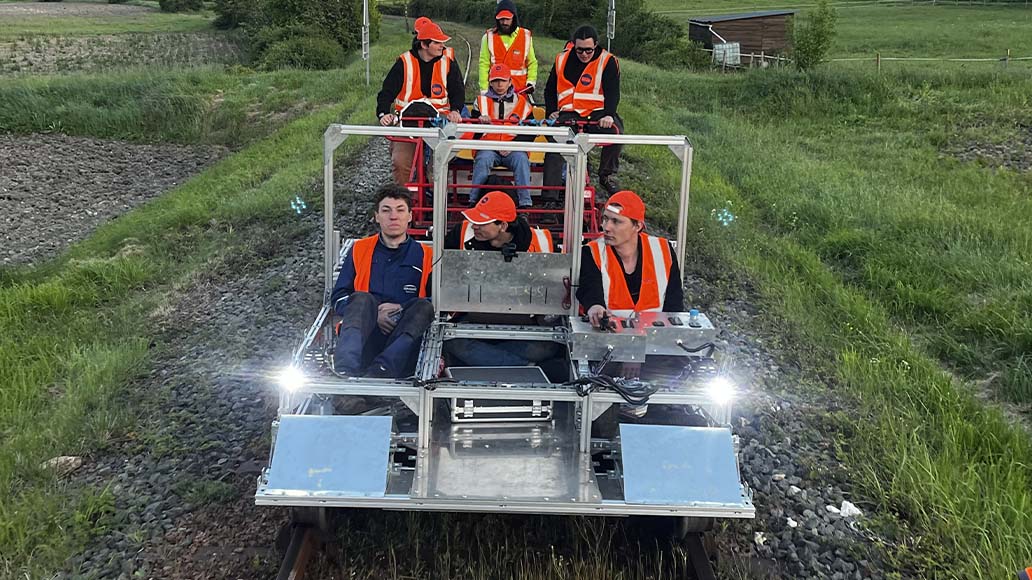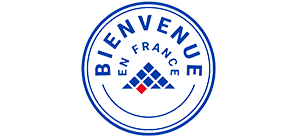A 100% Electric Railbike with Energy Recovery

From April 15 to 20, 2024, some thirty students from the rail industry tested their prototype electric rail-bike with energy recovery in Charente Maritime on the Mouettes train line. Entirely designed and built as part of their training, this project applies the concepts of aerodynamics, transmission, chassis, piloting. All with a view to developing tomorrow’s lighter, more sustainable trains.
Testing a vehicle entirely designed and built as part of an academic project
For the past two years, ESTACA students have been running a complete engineering project, as part of their training in the rail program, to design a 100% electric rail-bike with energy recovery. The goal of this type of project is to design, manufacture and test a rolling vehicle, and offer manufacturers the possibility of conducting their own experiments.
This year, 24 students were involved in the project, supervised by Marc Ciais, SNCF engineer and head of ESTACA’s rail program. With two chassis and two electric bicycle motors, the vehicle is able to reach speeds of up to 45 km/h, where conventional rail-bikes are limited to 20 km/h. Compared to last year, the chassis has seen a number of modifications to make it more rigid and passenger friendly. The rolling stock has been optimized, the powertrain has been fully overhauled for greater reliability, and a low-voltage architecture worthy of modern rolling stock has been included, providing a driving experience as close as possible to that of today’s railcars.
Thanks to a partnership with the Ferrocampus de Saintes, a week of tests on the vehicle designed and manufactured on the ESTACA Paris-Saclay campus was organized with the association Trains et Traction which operates the Mouettes train line.
“The association team welcomed us to its workshop with open arms, and real osmosis developed between the students and the association’s volunteers. We will definitely continue working together for years to come”,
explains Marc Ciais.
A unique educational experience
Rail is attracting increasing interest, as it offers key advantages in the world of low-carbon mobility. The train is the champion of energy frugality and simplicity! As the only French school to offer training specifically dedicated to the railway sector, ESTACA makes it a point of honor to offer its students innovative educational methods with concrete projects to apply their knowledge, develop teamwork and learn to develop skills in conditions very close to those of railway engineers.
The Vélorail project is part of this approach. Its objective is primarily educational: to work on the entire project process, from the design to the testing phase, in order to experience different facets of a railway engineer’s job. But it’s also about getting hands-on experience of real-life engineering, including learning how to deal with the unforeseen events that are an inescapable part of any project. So, when an axle failed during testing, the students had to work together to come up with a solution.
Hugo Decloquement, a 5th year student, is currently doing an internship at Alstom. He worked on the vehicle last year and is continuing to follow the project this year:













